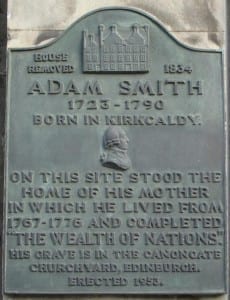Politics, philosophy and economics, oh my!

The U of R will offering a new course that takes on socio-political issues
Author: Neil Middlemiss – Contributor
Beginning this fall, the Faculty of Arts is offering a new program to students interested in tackling socio-political issues. The new Philosophy, Politics, and Economics (PPE) program offers students an interdisciplinary training in – you guessed it – philosophy, politics, and economics. The idea is obviously that a more holistic training leads to greater understanding of the complex issues of contemporary society. The PPE program is intended to produce students proficient in public service, public policy, business, consulting, and journalism.
Thoughtful arts students might see a resemblance to the now-canceled Arts and Culture program, which also placed an emphasis on interdisciplinary training. There are three major differences between this new PPE program and the old Arts and Culture program.
First, the PPE program offers more structure in terms of which classes are to be taken when. Even if you are already enrolled in philosophy, political science, or sconomics, the PPE program has a suggested track for completing your degree in 4 years.
Second, the PPE program includes fully interdisciplinary courses. For example, the PPE 200 “Foundations Course” will be offered this Fall. This is a course in which students will receive lectures from professors from each of the philosophy, political science, and Economics departments. This course will examine issues, like “End of Life Care,” “Provincial Budgeting,” “International Free Trade,” and “Autonomous Humanoid Robots and Future Unemployment” through the lens of each of the three disciplines.
Third, PPE is an internationally recognized qualification, so when you begin to look for jobs or to move on to graduate schools, there is a degree of recognition built into your degree.
These differences are key. The Arts and Culture program ultimately folded due to low enrollment numbers. The structure of the PPE program should draw more students who will be able to more clearly see what they will learn and where it will take them. Many students still want an interdisciplinary education and this combination of structure and freedom will be appealing to a lot of students, particularly those who already have dreams of going on to interdisciplinary studies in graduate school.
Nonetheless, a problem remains. History professor Mark Anderson noted that a major reason why the Arts and Culture program failed was that it was a program, and not a department. With no department, there is typically no dedicated faculty, which gave the Arts and Culture program less sway during the Academic Program Review a few years ago. Should the university begin a new Academic Program Review, this may become just as much an issue for the PPE program as it was for the Arts and Culture program.
The only reasonable guarantee of the program’s success will be enrollment numbers. It seems that the program has been organized to best ensure those numbers grow, but whether they do or not remains to be seen. Students can register for PPE 200 themselves via UR Self-Service and should book an appointment with an academic advisor if interested in changing to that program.









